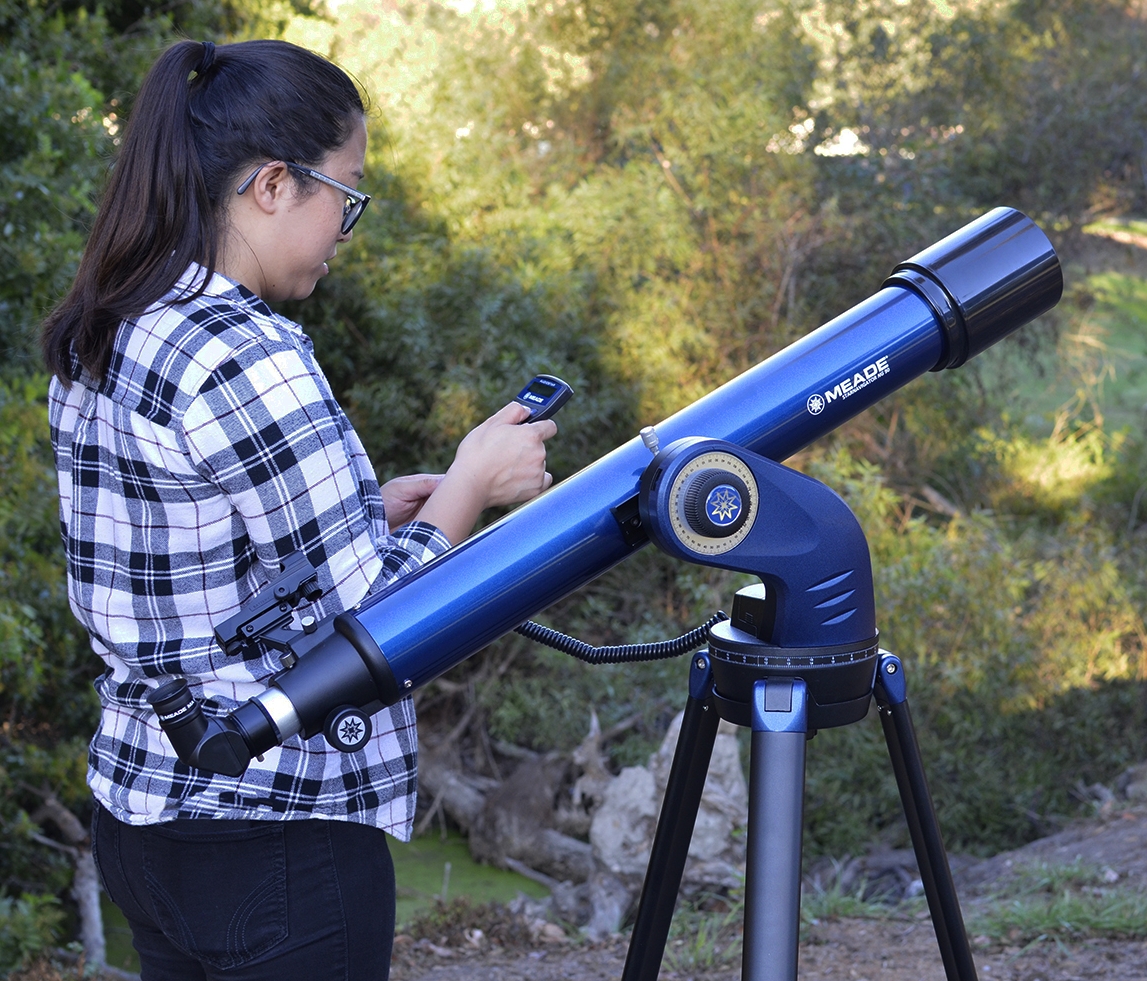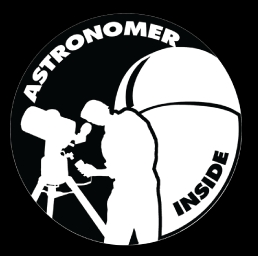Glossary | Telescopes | General | Series | StarNavigator NG

StarNavigator are affordable light-weight telescopes for young people, beginners and the entire family! The series offers classic refractors, Newtonians for star clusters and nebulae, and Maksutov optics for observers of Moon and planets.
Each model can be easily positioned on the desired target thanks to the GoTo computer control.
Meade takes these classic telescopes, popular for many years, to the next level: The StarNavigator NG (Next Generation) Series features the new AudioStar hand-controller, a light but stable and fully height adjustable aluminium tripod allowing comfortable viewing from either a seated or standing position.
Thanks to the built-in battery box, the telescope can be used anywhere. But it can also be operated with a mains adapter, ideal for use on the balcony or terrace.
AudioStar

The AudioStar handheld control provides a database of 30,000 astronomical objects. Once aligned to the night sky, AudioStar can position the telescope to point to any of these objects and centre them in the eyepiece - of course only if the object is above the horizon. The GoTo functionality is supplemented by additional features, such as guided tours, position display and connection to a PC.
A special feature of the AudioStar controller is its built-in speaker. The built-in Astronomer Inside technology provides over four hours of audio commentary. The built-in astronomer will relate interesting information about astronomical objects located in the field of view!
Easy Align
At the beginning of each observing session, the computer control must be matched with the actual night sky. This is called alignment. Alignment is particularly simple with this telescope: after entering the location and the orientation to the north, the telescope slews to two bright stars in succession. These simply have to be centred in the eyepiece and the alignment is done, and the telescope is ready for use.
